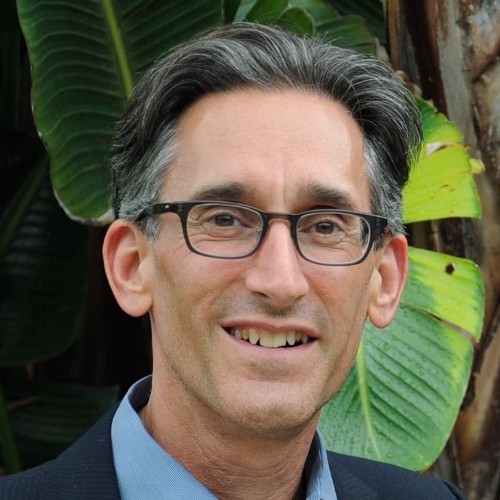SLEEP AS A SUPERNUTRIENT
Sleeping well is profoundly healing; a vital “activity” in which we must engage to foster well-being. Virtually nothing else can change your outlook on life and your ability to heal as much as sleep does, and there’s a lot to be said about what goes on biologically during these hours, too. Anticancer living means prioritizing this highly productive healing time, and addressing any obstacles or difficulties. Your body will thank you!
Taking Pills versus Changing Behaviors
We are strong proponents of cancer survivors and others avoiding sleeping pills. There are of course times when taking sleeping pills may be appropriate, under the guidance of a physician, to help break a bad cycle or for a limited period to help with jet lag. But it is vital to understand that sleeping pills do not tackle the root problem leading to sleep disturbances. Also, pill-assisted sleep is not truly restorative sleep. While sleeping pills do put you to sleep, benzodiazepines and other drugs do not move you through all stages of sleep. In fact, no drug on the market increases the deepest stages of sleep, the restorative part of sleep, critical for maintaining health. So, you may feel like you have gotten a good night’s sleep, but the true restoration needed to improve your health will still be missing.
Methods for Improving Sleep
There are several anticancer living approaches to addressing the stressors that inhibit healthy sleep, and these include the following:
COGNITIVE BEHAVIORAL THERAPY-INSOMNIA (CBT-I)
This short, focused talk therapy is extremely effective in treating insomnia. In just a few weeks, patients learn to change their sleep habits and research shows that it is much more effective than prescription drugs in providing long- term results. CBTI can be delivered in person, in group formats, by telephone, or via internet-based treatment and has been shown to have long-term benefits for improving sleep.
TAI CHI
In his work at the Semel Institute for Neuroscience, UCLA, Michael Irwin, MD, has done remarkable research that looks at the efficacy of tai chi for helping breast cancer survivors who suffer from insomnia. The results show that tai chi promotes “robust” improvements in sleep duration and quality, which are comparable to CBTI, or talk therapy, and provides additional benefits of reduction of depression and daytime fatigue. This is a remarkable finding in that CBTI has been the gold standard nonpharmaceutical treatment for insomnia— but it can be expensive. Tai chi, on the other hand, is often offered at community or senior centers, public libraries, or in outdoor parks, for little or no cost. Plus, there is the added benefit of doing it as part of a group, which bestows additional health benefits associated with being connected to a social group or network. Irwin notes that the subtle, rhythmic movements of tai chi relax the body, slow breathing, and reduce inflammation, which is associated with cancer recurrence.
Irwin’s study recruited ninety breast cancer survivors ranging in age from fortytwo to eighty-three. Half the women were in a group that engaged in weekly CBTI and the other group did weekly tai chi for three months. Both groups were closely monitored monthly, and fifteen months later both groups reported continued improved sleep and less fatigue. Not only was tai chi as effective as CBTI at improving sleep outcomes, Irwin found that tai chi led to greater reduction in inflammatory markers than CBTI. They also demonstrated that this practice reduced inflammatory gene expression profiles— a key factor in preventing disease onset or progression, including cancer.
This study, Irwin believes, points to the importance of sleep in terms of overall health and homeostasis (internal balance). “We know that quality sleep is important to the regulation of our endocrine system, the sympathetic nervous system, and the immune system— three systems that need to be well balanced in order to stave off serious diseases, including cancers. Making lifestyle changes such as engaging in tai chi, for example, can rebalance one’s circadian rhythm and restore and reinforce healthy sleep architecture, which are thought to be important in promoting health and even possibly in preventing cancer recurrence.”
MEDITATION
Meditation has also been shown to promote restful sleep. Irwin and his team taught meditation to a small group of people over fifty-five years of age who complained of moderate sleep disruption. These meditators were compared to another control group of the same age that was given basic sleep education. The meditators not only slept better but also reported less depression and daytime fatigue. Also important, in study after study we see that participating in meditation also leads to higher melatonin levels, the hormone that is necessary to help us initiate and maintain our sleep.
YOGA
In a study conducted at the University of Rochester, four hundred cancer survivors who were experiencing sleep disturbances reported that both their subjective and objective sleep quality improved after attending two yoga sessions a week for just four weeks. In addition, research we conducted at MD Anderson in women with breast cancer undergoing radiotherapy found that those who practiced yoga up to three times a week during radiotherapy had better cortisol regulation than a light stretching control group at the end of treatment and one month later. In fact, cortisol levels for the women in the yoga group dropped more on a daily basis than that of the control group, allowing the body to relax and prepare itself for sleep. We have also found that women undergoing chemotherapy who practice yoga at least two times a week or more also report improved sleep outcomes. Though more research is needed to show if tai chi, meditation, yoga, or other mind- body practices have a long-term impact on sleep quality and health outcomes, the data that’s been gathered is promising.
Lorenzo Cohen, PhD, is an advisor on the film, “Stress Reset,” as a part of The Healthy U.S. Collaborative’s TakeCare campaign. He is a professor and the director of the Integrative Medicine Program at the University of Texas MD Anderson Cancer Center and the author of the book Anticancer Living: Transform Your Life and Heath with the Mix of Six.


